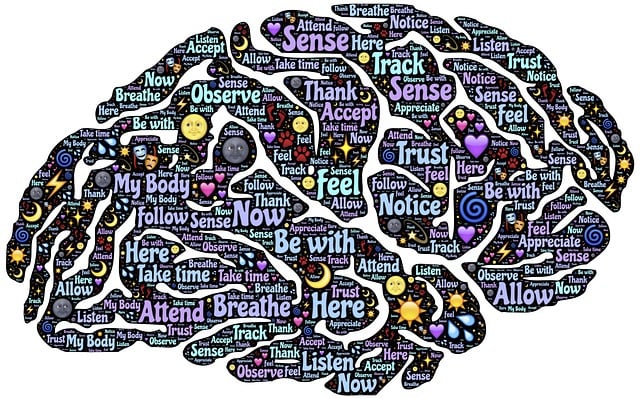Understanding mental health data involves integrating diverse sources like survey responses, wearable device data, and clinical notes. Processing these datasets through meticulous cleaning techniques enables accurate risk assessments for tailored interventions like Boulder Stress Management Therapy (BSMT). Analysis leverages various methods from statistical to qualitative to uncover intricate patterns. BSMT's success lies in identifying stress triggers, emotional regulation teaching, and building resilience, with data-driven refinements benefiting individual clients and shaping effective mental health programs. Despite challenges in accuracy, bias, and privacy, AI integration, cultural sensitivity, and resilience research hold promise for enhancing patient care through BSMT.
Mental health data analysis is a growing field, crucial for understanding and addressing psychological well-being. This article explores the process of interpreting mental health data, from collecting and preprocessing information to advanced analysis techniques. We delve into specific methods used in evaluating stress levels, focusing on Boulder Stress Management Therapy’s application, offering valuable insights for therapy optimization. Additionally, we discuss ethical considerations and future potential in this domain.
- Understanding Mental Health Data: Collection and Sources
- Preprocessing and Cleaning Data for Accurate Analysis
- Techniques for Mental Health Data Analysis
- Interpreting Results: Insights and Applications with Boulder Stress Management Therapy
- Challenges, Ethical Considerations, and Future Directions in Mental Health Data Interpretation
Understanding Mental Health Data: Collection and Sources

Understanding Mental Health Data involves recognizing that it’s a multifaceted landscape encompassing various sources and collection methods. In today’s digital age, data on mental wellness is increasingly being digitized, making it accessible through online platforms and mobile applications. These tools capture insights into individuals’ daily experiences, stress levels, and participation in self-awareness exercises or compassion cultivation practices, like those offered by Boulder Stress Management Therapy.
Key sources include survey responses, wearable device data, and clinical notes from therapy sessions. Each offers unique perspectives: surveys provide structured information about mental health perceptions; wearables track physiological indicators related to stress and mood; while clinical notes capture nuanced details during interactions with therapists. Integrating these diverse datasets allows for a comprehensive analysis of mental health trends, enabling researchers and practitioners to tailor interventions like Boulder Stress Management Therapy to meet individual needs more effectively.
Preprocessing and Cleaning Data for Accurate Analysis

Before diving into mental health data analysis, a crucial step is preprocessing and cleaning the data. This involves meticulously examining the information to identify and rectify any inconsistencies, errors, or missing values that could skew results. For instance, in a study focusing on Boulder Stress Management Therapy, researchers must ensure all patient demographics, therapy types, and treatment durations are accurately recorded and consistent across the dataset.
Data cleaning is not merely about removing outliers; it’s also about transforming raw data into a structured format suitable for analysis. This process requires a deep understanding of statistical methods and often involves techniques such as normalization, encoding categorical variables, and handling missing data through imputation or deletion. A thorough and accurate data preprocessing pipeline fosters reliable risk assessments for mental health professionals, enabling them to make informed decisions regarding patient care and treatment planning, ultimately promoting positive thinking and mental wellness outcomes.
Techniques for Mental Health Data Analysis

In the realm of mental health data analysis, a variety of techniques are employed to unravel complex patterns and gain insights that can inform treatment strategies and policy decisions. These methods range from statistical analysis and machine learning algorithms to qualitative approaches like thematic analysis and narrative inquiry. For instance, in evaluating the efficacy of Boulder Stress Management Therapy, researchers might employ mixed-methods designs, combining quantitative data from surveys with qualitative interviews to capture the nuanced experiences of participants. This comprehensive approach allows for a more holistic understanding of therapy outcomes, considering both statistical trends and individual narratives.
Furthermore, mental health policy analysis and advocacy can greatly benefit from these analytical techniques. By analyzing data related to Community Outreach Program Implementation and Healthcare Provider Cultural Competency Training, policymakers can identify successful interventions, tailor support systems, and address disparities in access to care. Data-driven decision-making ensures that resources are allocated effectively, ultimately enhancing the reach and quality of mental health services.
Interpreting Results: Insights and Applications with Boulder Stress Management Therapy

When analyzing mental health data, particularly with Boulder Stress Management Therapy (BSMT), interpreting results requires a nuanced approach to uncover meaningful insights. BSMT focuses on identifying and addressing underlying causes of stress, promoting emotional regulation, and fostering resilience. By examining participant responses and behavior patterns, therapists can gain valuable knowledge about the effectiveness of specific interventions and tailor their approaches accordingly. This iterative process not only enhances individual treatment outcomes but also informs the design of Mental Health Education Programs, aiming to prevent burnout and foster overall well-being.
Moreover, data analysis enables researchers and practitioners to identify trends and common challenges within diverse populations. For instance, understanding emotional regulation strategies that resonate with specific demographics can inform tailored interventions. This evidence-based approach ensures that Boulder Stress Management Therapy remains adaptable and effective in addressing contemporary mental health concerns, ultimately enriching the lives of those seeking support.
Challenges, Ethical Considerations, and Future Directions in Mental Health Data Interpretation

Mental Health data analysis holds immense potential for improving patient care and outcomes, but it’s not without its challenges. One significant hurdle is ensuring the accuracy and validity of collected data, as subjective nature of mental health can lead to inconsistencies in measurement and reporting. Bias, both in data collection methods and interpretation, must be carefully considered to avoid exacerbating existing disparities in access and quality of care. Additionally, maintaining patient privacy and confidentiality during analysis is paramount, requiring robust security measures and adherence to stringent ethical guidelines.
Looking ahead, the future of mental health data interpretation promises exciting possibilities. Integrating innovative technologies like artificial intelligence (AI) and machine learning algorithms could enhance diagnostic accuracy and personalize treatment plans based on individual profiles. The development of a more nuanced understanding of cultural sensitivity in mental healthcare practice, as explored in the Mental Wellness Podcast Series Production, will be crucial for addressing diverse needs and ensuring equitable access to effective Boulder Stress Management Therapy. This, coupled with ongoing research into resilience building, could lead to proactive interventions that foster mental wellness on a broader scale.
Mental health data analysis is a complex yet rewarding field, offering valuable insights into human well-being. By understanding diverse data sources, implementing robust preprocessing techniques, and exploring advanced analytical methods, researchers can uncover meaningful patterns. As demonstrated with Boulder Stress Management Therapy, interpreting these results has the potential to revolutionize mental healthcare, leading to more personalized and effective treatments. However, navigating ethical considerations and addressing challenges in data collection and interpretation is essential for responsible progress in this domain. Future research should focus on integrating AI and machine learning while adhering to strict privacy standards to ensure a brighter, healthier future for all.














